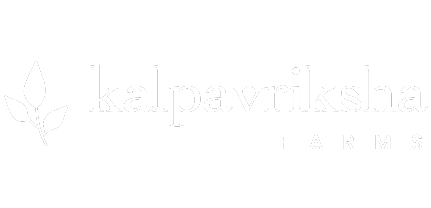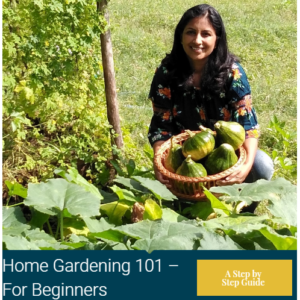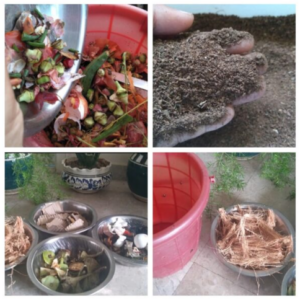Description
Start Your Home Gardening Journey with Our Free Beginner’s Guide
If you’ve ever wondered how to start gardening at home, you’re not alone. Whether you have a spacious backyard or just a few pots on your balcony, home gardening is a rewarding way to bring nature closer, grow fresh produce, and enjoy a healthier lifestyle. But knowing where to begin can be tricky.
What Is Home Gardening?
Home gardening means cultivating seasonal plants right where you live, this could include vegetables, herbs, flowers, or even small fruit plants. Whether you have a garden bed outdoors or a few pots and containers indoors, gardening lets you enjoy fresh, chemical-free produce while beautifying your surroundings.
Beyond these practical advantages, gardening is also a great way to relax, connect with nature, and develop patience and creativity.
Why Is Home Gardening Valuable?
In today’s busy lifestyle, growing your own garden is more important than ever. It helps you build a closer relationship with nature, encourages eco-friendly living, and provides fresh, nutritious food just steps from your door. Plus, gardening offers a peaceful, fulfilling activity that lowers your environmental impact.
Benefits of Gardening at Home
- Fresh, Healthy Produce: Cultivate fruits, vegetables, and herbs without harmful chemicals.
- Improved Mental Health: Gardening helps reduce stress and fosters a calm atmosphere.
- Savings: Cut down on grocery bills by growing your own ingredients.
- Positive Environmental Effects: Decrease waste and promote biodiversity by creating green spaces.
How to Start Gardening at Home?
Starting your own garden doesn’t have to be complicated or intimidating. Our FREE Home Gardening 101 – For Beginners guide is created to help you take the first steps with confidence. It offers practical advice and simple ideas to help you begin growing plants in your own space – whether indoors or outdoors.
The guide is perfect for anyone looking for an easy introduction to home gardening without overwhelming technical details. It’s designed to inspire you and provide helpful tips that make starting your garden enjoyable and achievable.
Explore Related Skills and Courses
Once you’ve got the basics of home gardening covered, you might want to explore other exciting areas of natural living and sustainable lifestyle. At Kalpavriksha Farms, we offer a range of courses and guides designed to help you deepen your knowledge and skills:
- Soap Making Course for Beginners: Learn How to Make Soaps at Home – Discover how to create natural, handmade soaps using simple ingredients and garden-grown herbs.
- Free How to Make Bio-Enzymes – Learn to make eco-friendly bio-enzymes that help with cleaning and gardening.
- Free Home Composting 101 – Understand how to turn kitchen and garden waste into rich compost that nourishes your plants.
Online Organic Gardening Course for Beginners – Take your gardening to the next level with tips and techniques focused on organic practices.
These courses perfectly complement your home gardening journey and help you live a greener, healthier lifestyle.
Ready to Begin Your Gardening Adventure?
Gardening at home is both simple and fulfilling. Whether you want to grow fresh food, create a relaxing green space, or start new creative projects like soap making, it all begins with the right knowledge and guidance.
Download your FREE Home Gardening 101 – For Beginners guide now and take the first step towards a greener, healthier lifestyle.
Frequently Asked Question (FAQs)
1. What is the easiest plant to grow for beginners?
Many beginners start with herbs like basil, mint, or parsley because they require minimal care and grow quickly.
2. Can I start gardening if I only have a small balcony or indoor space?
Absolutely! Many plants thrive in containers and pots, making gardening possible even in limited spaces.
3. How much sunlight do plants need to grow well at home?
Most vegetables and herbs need at least 4-6 hours of direct sunlight daily, but some plants can tolerate partial shade.
4. Do I need special soil for home gardening?
Using good quality potting soil or garden soil enriched with compost helps your plants grow healthy and strong.
5. How often should I water my plants?
Watering needs vary by plant type, but generally, it’s best to water when the top inch of soil feels dry to the touch.
6. What are natural ways to protect my plants from pests?
You can use neem oil emulsion, homemade insect-repellent sprays, or introduce beneficial insects like ladybugs to keep pests in check.
7. Can I grow vegetables year-round at home?
Depending on your region, climate and available space, you can grow certain vegetables year-round, especially indoors or in a greenhouse.
8. How long does it take for plants to grow and be ready for harvest?
Growth time varies widely; leafy greens may be ready in 25-30 days, while fruiting plants like tomatoes take 3-4 months or longer.
9. Is home gardening expensive to start?
Not necessarily! You can begin with simple tools and seeds or seedlings. Over time, you can gradually invest more as your garden grows.
10. What is the most popular home gardening method?
Container gardening is one of the most popular methods because it works well for both indoor and outdoor spaces, especially where soil or space is limited.
11. Which plants grow faster at home?
Leafy greens like spinach, and herbs such as basil and mint are among the fastest-growing plants, often ready to harvest within a few weeks.
12. Is home gardening profitable?
While home gardening is mostly for personal use and enjoyment, some gardeners successfully sell excess produce or value-added products like herbs and handmade soaps, making it a small but rewarding source of income.
13. Which plant grows fast in 2 days?
Most plants don’t visibly grow significantly in just two days, but microgreens and some sprouts can show quick germination and growth in a very short time.
14. Which plant gives more money?
High-value plants like herbs (e.g., mint, basil), specialty vegetables, micro-greens and medicinal plants can generate more income, especially when sold fresh or processed into products like herbal teas or soaps.
15. What are the essential tools for gardening at home?
Basic tools include a trowel, pruning shears, watering can, gardening gloves, and containers or pots for planting.
16. Where can I learn more about gardening and related sustainable practices?
You can explore our free guides and courses on home gardening, composting, bio-enzymes, and more to deepen your skills and knowledge.



